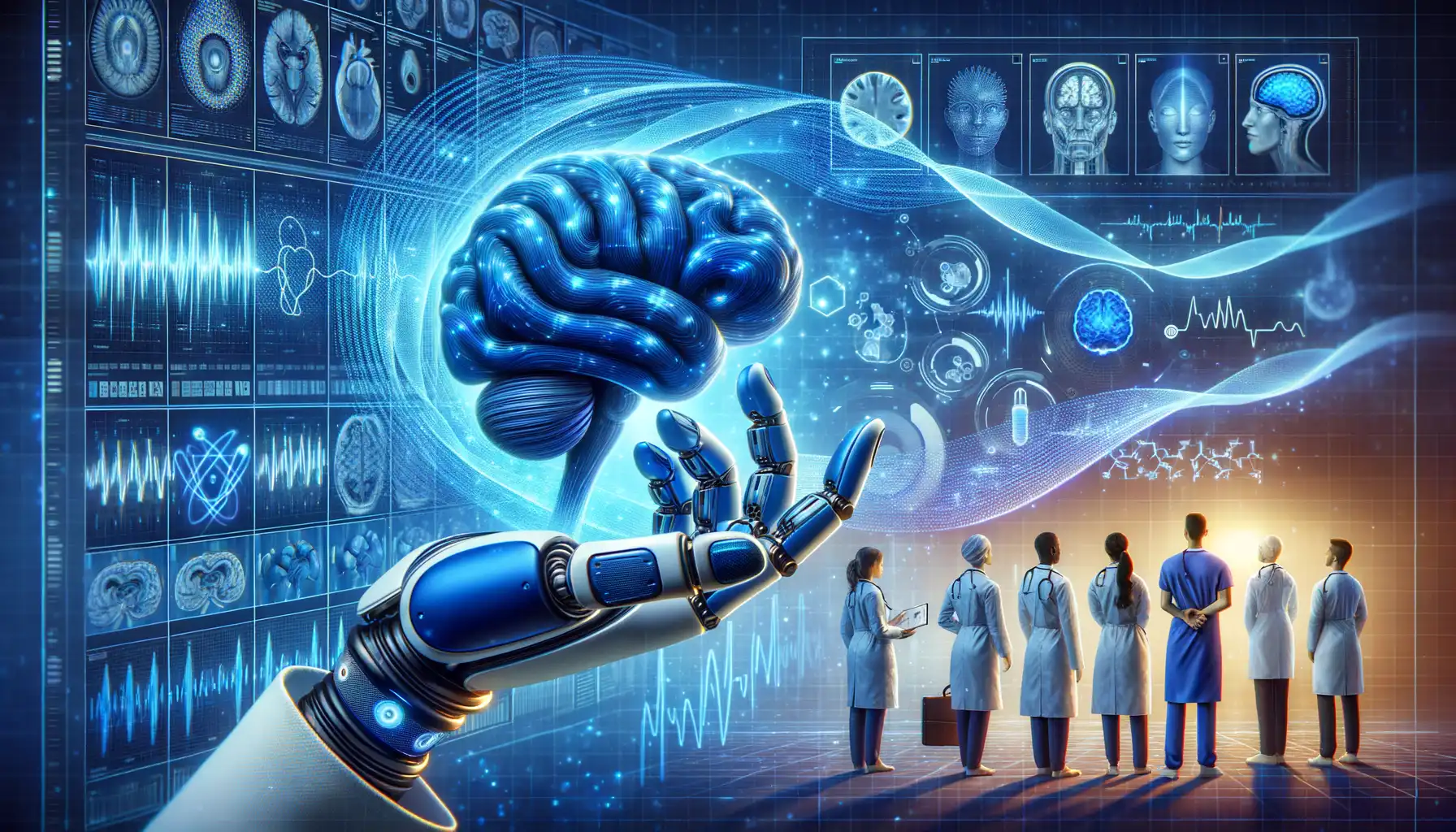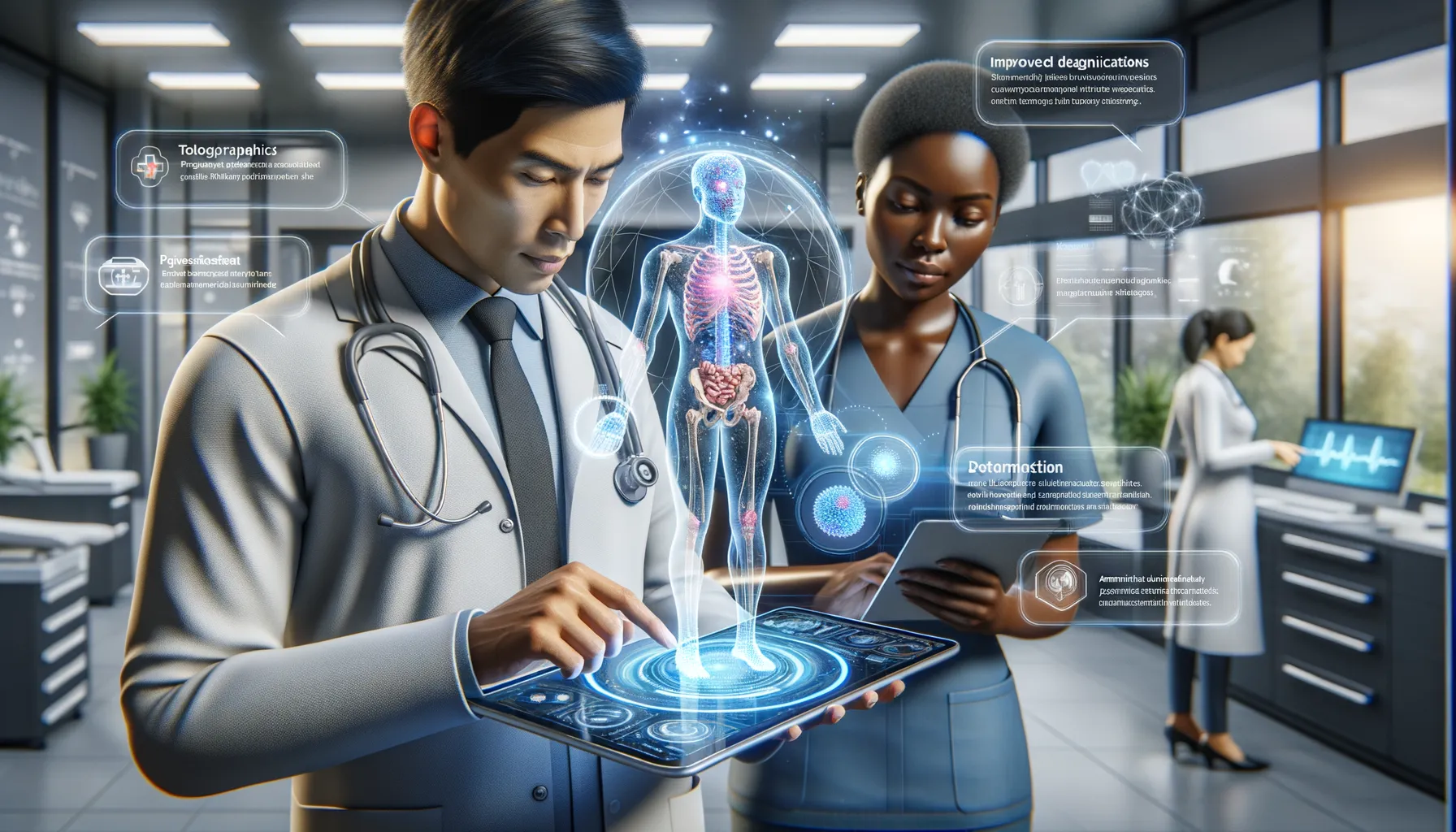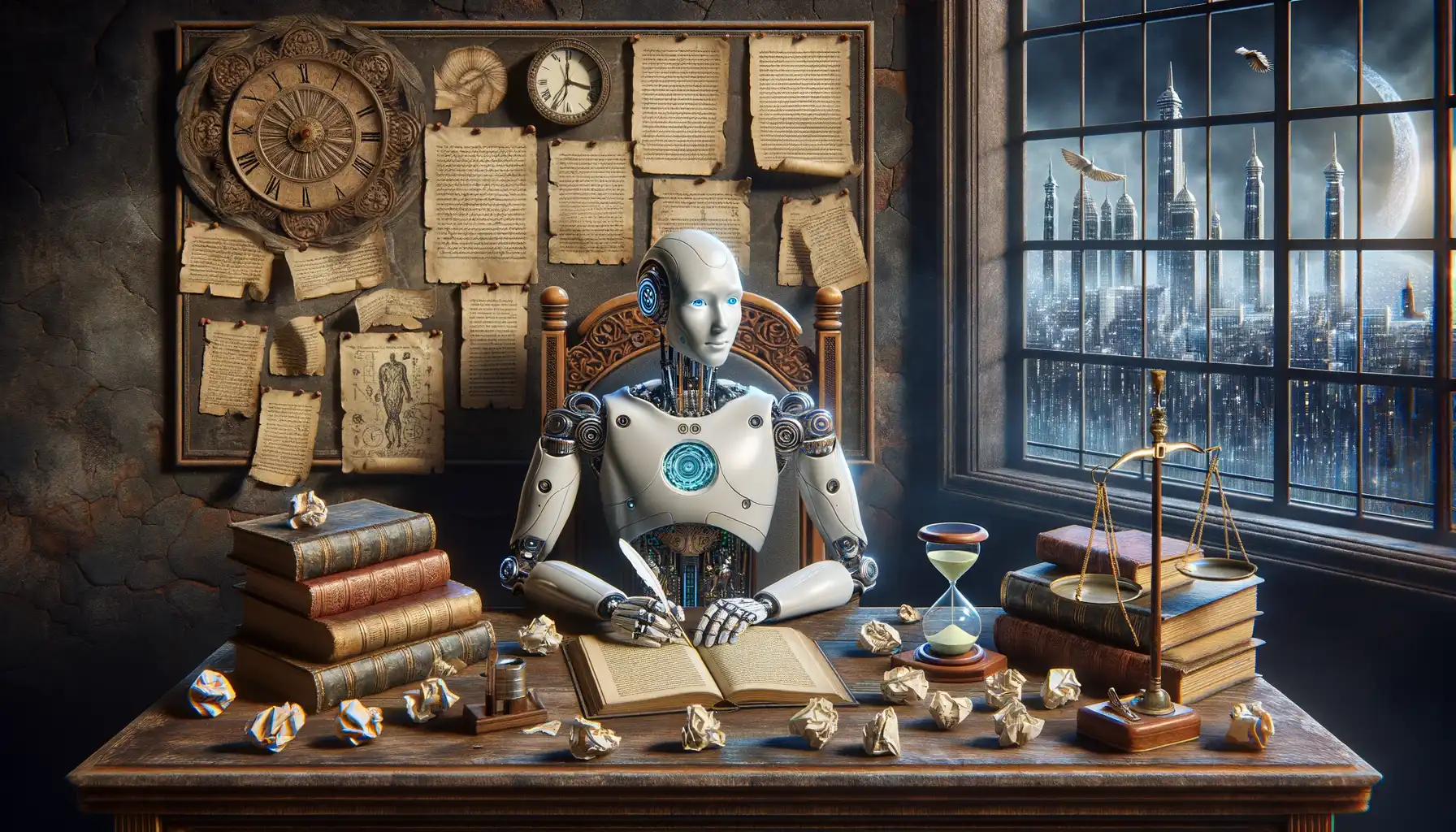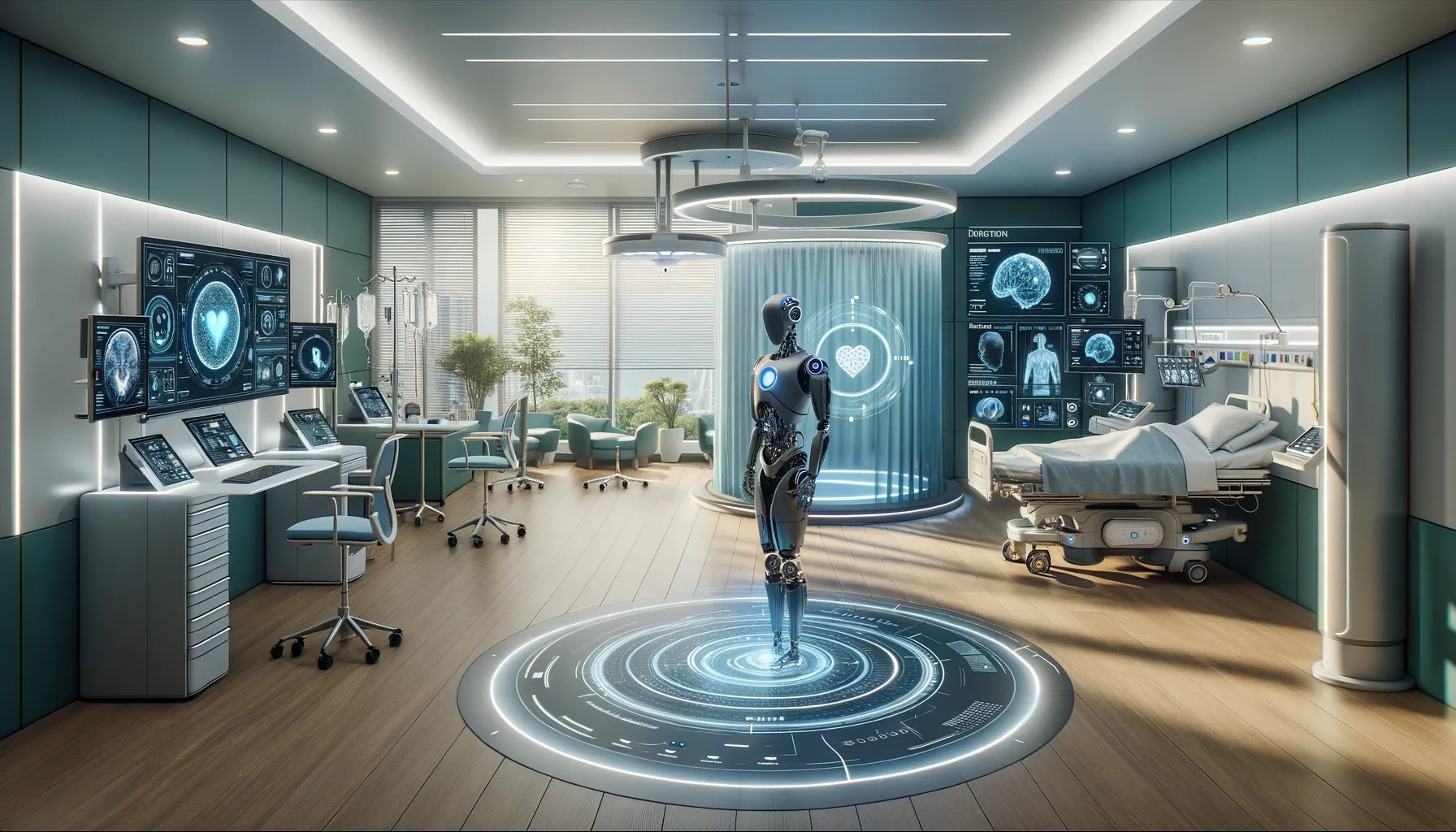Introduction to AI in Healthcare
Imagine a world where doctors have an extra pair of eyes, always focused, never tired. That’s what AI in healthcare feels like—a tireless assistant working behind the scenes to transform patient care. But let’s face it, artificial intelligence might still sound like sci-fi to some. So, let’s break it down in a way that speaks to everyday life.
The Marriage of Data and Compassion
At its heart, AI in medicine isn’t about replacing doctors—it’s about empowering them. Picture this: every day, healthcare professionals sift through oceans of data—test results, patient histories, research articles. AI steps in like a devoted librarian, organizing information, spotting patterns, and making connections a human might miss. For example, AI algorithms can analyze imaging scans in seconds, detecting subtle anomalies that could save a life.
But here’s what’s really striking—it’s not just about efficiency. It’s about adding a layer of precision and insight that feels almost like intuition:
- Virtual health assistants that never sleep, reminding patients to take meds or book check-ups.
- Predictive analytics that foresee potential illnesses before symptoms emerge, unlocking preventive care.
When science meets empathy through AI, it’s not just technology. It’s personal. It’s transformative. And it’s happening right now.
Applications of AI in Diagnosis and Treatment

Revolutionizing Diagnosis with AI
Imagine a world where identifying illnesses feels like unlocking a riddle with the sharpest tools imaginable. That’s exactly what AI does for diagnosis. By analyzing complex datasets at lightning speed, AI can detect subtle patterns that even seasoned doctors might miss. Take radiology, for instance—AI-powered tools like Google’s DeepMind help detect early signs of conditions such as breast cancer or eye diseases from scans, often with more precision than human experts.
And it doesn’t stop there. AI is your detective in the lab, sifting through genetic data to identify markers for rare diseases. With technologies like IBM Watson Health, AI cross-references millions of medical studies to suggest possible diagnoses tailored to your unique symptoms.
- Spotting tumors in CT scans faster and more accurately
- Flagging irregular heart rhythms through wearable devices
- Even predicting outbreaks of diseases like malaria using epidemiological data!
AI-Powered Treatment: A Personalized Revolution
When it comes to treatment, AI isn’t just smart; it’s downright transformative. Picture this: instead of one-size-fits-all prescriptions, you get a treatment plan crafted just for you. That’s the magic of precision medicine. AI can analyze your genetics, lifestyle, even your favorite snacks (well, almost!) to design therapies that fit your body’s unique blueprint.
Think about robotic surgery too—intelligent systems like Intuitive Surgical’s da Vinci act as a surgeon’s extended hand, delivering pinpoint accuracy and smaller cuts, so patients heal faster. And for chronic conditions? AI helps manage care with apps that remind patients to take medications, track progress, and even offer emotional support.
This isn’t just technology—it’s a new level of care, one that feels remarkably human.
Benefits of AI Adoption in Healthcare

How AI Is Redefining Patient Care
Imagine walking into a clinic where your health records are reviewed in seconds, your symptoms understood clearly, and personalized treatment plans prepared before you sit down. That’s the power of adopting AI in healthcare—it’s not just a technological leap; it’s a life-changing experience.
One standout benefit is how AI takes the heavy lifting off overburdened medical staff. From automating routine tasks like appointment scheduling and patient follow-ups to analyzing complex radiology images, it frees doctors to focus on what truly matters: real human connection with their patients.
And let’s talk about speed. AI diagnoses illnesses faster than traditional approaches, whether it’s detecting early-stage cancer or predicting life-threatening conditions like sepsis. For a patient, this isn’t just impressive—it’s lifesaving.
- Precision medicine: AI crafts treatments tailored to YOUR unique genetic makeup.
- 24/7 monitoring: Wearables powered by AI track your vitals while you sleep—think of it as your silent guardian angel.
- Reduced errors: No more missed abnormalities in test results; algorithms catch what human eyes might overlook.
The best part? AI doesn’t get tired. It doesn’t need breaks. It’s always on call, working tirelessly to deliver care that feels personal, compassionate, and precise. Now that’s a revolution worth celebrating.
Boosting Healthcare Accessibility
Have you ever thought about how many people skip critical health checkups because they live too far from specialized clinics or don’t have access to expensive tests? With AI adoption, this gap starts to close.
Take telemedicine, for instance. Thanks to AI-driven platforms, patients in rural areas can now consult specialists in urban hospitals without ever leaving their homes. Voice assistants translate symptoms into actionable medical insights, while chatbots guide patients through follow-up care as if a doctor were texting them directly.
Moreover, AI apps equipped with image recognition allow individuals to self-scan skin lesions or track chronic illnesses using just a smartphone. Who knew a simple handheld device could transform into a lifeline?
Beyond distance, AI is also addressing cost barriers. Streamlined workflows mean fewer administrative costs for hospitals, which translates to lower bills for patients. Suddenly, cutting-edge healthcare doesn’t feel so out of reach. It’s healthcare for everyone, by everyone, fueled by the boundless possibilities of artificial intelligence.
Challenges and Ethical Considerations in AI Implementation

The Human Factor: Balancing Technology and Empathy
Imagine sitting in a doctor’s office, sharing your deepest fears about your health. Now picture that conversation handled by a machine. Unsettling, right? One of the biggest challenges in integrating AI in healthcare is ensuring machines don’t replace the human touch but complement it. Patients aren’t just collections of data points—they are people, carrying emotions that algorithms simply can’t decode.
How do we maintain this balance? It’s a tightrope walk between adopting cutting-edge tech and preserving patient trust. AI might analyze symptoms faster than any doctor, but would you trust a diagnosis if it misses the nuance in your voice—the subtle hesitation or worry that only a human clinician could pick up on?
Key Ethical Dilemmas to Watch Out For
Not all hurdles are technical; many stem from moral gray zones. Consider these complex dilemmas faced when implementing AI solutions:
- Data Privacy: Who owns your medical data, and how can we prevent its misuse?
- Bias in Algorithms: If training data lacks diversity, can AI unintentionally discriminate?
- Accountability: If an AI system makes a harmful error, who takes responsibility?
These aren’t mere hypotheticals—they’re realities shaping how we interact with this rapidly advancing technology. Tackling them means asking tough questions, sometimes without easy answers.
Future Trends of AI in the Healthcare Industry

AI-Powered Revolutions: What Lies Ahead
Imagine walking into a doctor’s office, where your medical history isn’t tucked away in some dusty file but instantly analyzed by an advanced AI. This isn’t science fiction – it’s the exciting future ahead! The next wave of AI in healthcare is poised to bring transformative change, making it smarter, faster, and more personalized than ever before.
One game-changer? Predictive analytics. Picture this: algorithms that can forecast potential diseases before symptoms even surface. Your health becomes a map, and AI the compass, guiding you toward prevention rather than cure. Also buzzing on the horizon is the integration of AI with wearable tech. Devices like smartwatches won’t just count steps; they’ll actively monitor chronic conditions, flagging issues in real-time.
- Virtual health assistants: These aren’t just glorified chatbots. They’ll evolve into intuitive companions capable of answering complex medical queries and reminding you to refill prescriptions.
- Personalized drug treatments: AI will craft medicines tailored to your unique genetic makeup, erasing the one-size-fits-all approach.
The cherry on top? Seamless collaboration between humans and machines. Doctors will lean on AI as trusted allies, providing care that’s both high-tech and deeply human. The future feels close, doesn’t it?
